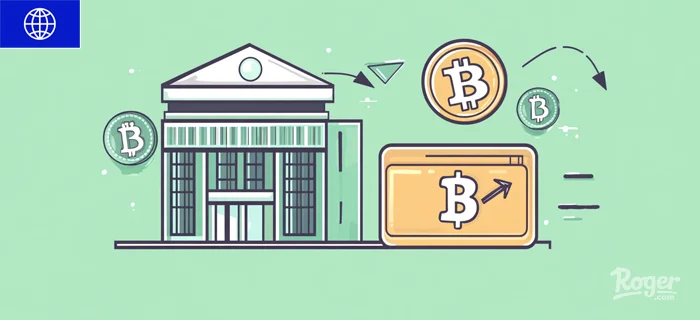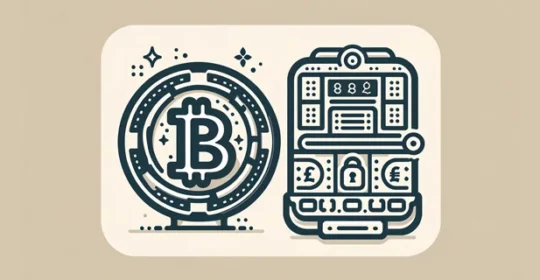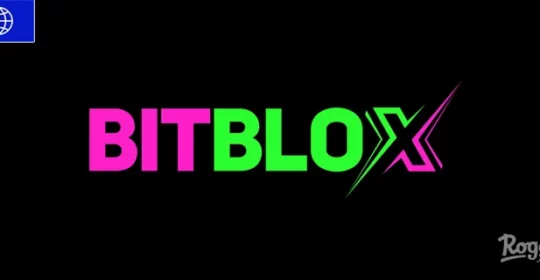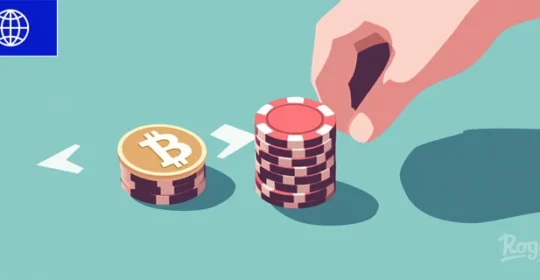Crypto has been a wild ride since 2018. Plenty of mistakes have been made—and lessons have come from them ever since. For some, losing thousands of dollars was a harsh lesson, but it doesn't have to define them.
Table of contents
The truth about anonymous crypto casinos: promises vs reality
The gap between what these sites promise and what they actually deliver is enormous. That’s marketing versus reality. Years of experience in this space have led to a few key lessons, some of which are below.
Most crypto casinos claim “no KYC required,”—but that’s often just a promise. Out of hundreds tested, only three allowed a cash-out without asking for ID. That says a lot.
Below, we look at the world of anonymous crypto casinos and what to expect if you hit the sign-up button.
KYC: what “no verification” really means
As a player, you’ll see KYC everywhere. But what does it mean?
In casinos, KYC (Know Your Customer) refers to the identity verification process where players must provide personal documents, such as an ID or proof of address, to comply with regulatory requirements and prevent fraud or money laundering.
Inside no KYC sites, small wins are fine, but if you win more than $500, they'll ask you to verify your documents within 24 hours or your withdrawal will be cancelled. That happened to our team in February on a well-known platform.
The testers had been playing there for weeks, won $625, and then-they asked for verification—despite no mention of KYCs when signing up.
Surprise surprise. Many of the best anonymous crypto casinos have verification systems – but they're hidden until it's time to withdraw.
The difference between “no KYC at sign-up” and “no KYC ever” is huge. The first simply delays the verification process, whilst the latter actually respects the right to keep personal information private.
Blockchain privacy myths debunked
Standard Bitcoin transactions aren’t as private as you might think. Whilst still more secure than fiat payments, every deposit & withdrawal is linked to your wallet.
Therefore, your entire gaming history is visible to anyone who cares to look. Depending on your playing style, you might want to avoid this.
Companies like Chainalysis sell tools to track crypto movements. Your “anonymous” gambling is about as private as a billboard with your name on it.
What you can do for more privacy:
- Separate gambling wallets
- Never connect directly to exchanges
- Move money through several wallets first
- Change the amounts between transfers
These tips aren’t foolproof, but better than nothing and help to break patterns.
Geographical restrictions & VPN issues
“Play from anywhere!” Yes, but no.
These sites now use advanced systems to detect players from restricted regions. They analyse not only your IP but also your browser configuration, screen resolution and time zone settings. Some even monitor how you type and move your mouse! This is super invasive and should be avoided if you can.
The Electronic Frontier Foundation (EFF) has been warning about these tracking methods for years. Even good VPNs struggle with them.
One counterintuitive tip that works: don’t server hop! Changing VPN locations constantly creates suspicious patterns. Find a reliable server and stick with it; otherwise, you might face account bans.
VPN-friendly casinos? Now that's a whole new ballgame. But we'll cover that shortly.
The house edge reality
Cryptocurrency casinos avoid banking costs, so it's no surprise that they offer worse odds than regulated sites. The answer is simple: they can get away with it.
👉 “Provably fair” sounds impressive, but it's mostly marketing fluff. The math works, but that means little when you're actually trying to win.
Our researchers learned this the hard way with two different slots. Both advertised return rates of 96%. But reality? One paid out small wins regularly enough to keep me interested. The other was a complete drain. They lost over $200 before we saw anything worthwhile.
The house edge was identical on paper, but the experience was worlds apart. It's clear that those places are experts at manipulating your expectations.
A good casino shares information about volatility and RTP. House edge figures are key here. When casinos share variance data alongside those figures, you get a clearer picture of how games behave when playing them.
This changed everything when it came to choosing games.
Financial security concerns
Financial safety should be a concern for every player. Casinos manage their finances differently, and this difference determines whether your money stays safe or vanishes during a security breach.
Responsible operators only keep a small portion (5-15%) of their funds in online wallets. The ones you should be worried about keep almost everything exposed to potential hacks. Their flashy marketing glosses over this crucial detail.
🚨 Crypto gambling may offer better privacy than traditional options. However, this is not always the case. Different levels of privacy have different trade-offs.
Playing outside regulated systems is not for the faint-hearted. You may pay for the lessons with real money. Hopefully, this will help you avoid the costly mistakes others have made.
Last thoughts
So, that’s the wrap on anonymous crypto casinos. They’re not for the faint-hearted. Not only do they come with more risk, but they can lead vulnerable players to problem gambling behaviours.
When possible, opt for online casinos with reputable licences, SSL encryption, and responsible gambling tools. And, of course, play mindfully and take breaks where possible.





